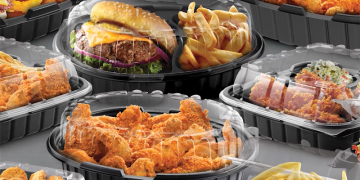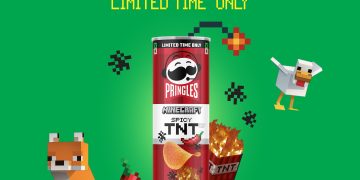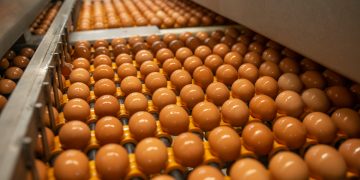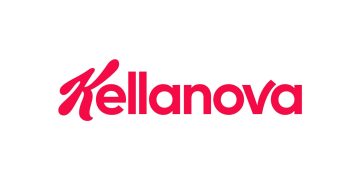With up to 60% of global fish stocks being overfished, there is a severe risk of a collapsing ocean ecosystem. The fishing industry is also the main reason for plastic pollution in the oceans. A collapse of marine biodiversity would be irreversible, and catastrophic for the estimated 3 billion people around the world who depend on the oceans for food and income.
Despite the dramatic loss of coral reefs, increasing levels of toxins and microplastic contaminating fish, consumer demand for seafood has paradoxically skyrocketed in recent decades. One promising solution to provide consumers with sustainable alternatives that does not contribute to overfishing is vegan seafood. The key to success of these products lies in recreating an authentic taste that appeals to the flexitarian market.
A new extrusion technology by Revo Foods allows the seamless integration of fats into a fibrous protein matrix – leading to a new generation of authentic seafood alternatives with the typical “flakiness” and juicy fibers of fish filets. Utilizing their patent-pending 3D-MassFormer™ technology, Revo Foods has developed the first-ever continuous production process capable of mass-producing 3D printed food.
With the milestone of industrial-scale 3D food printing, we are entering a creative food revolution, an era where food is being crafted exactly according to the customer needs. We are not just creating a vegan alternative; we are shaping the future of food itself.” – Robin Simsa, CEO of Revo Foods.
This new process is a gamechanger for meat alternatives, making it possible to create a new category of authentic products such as vegan steaks and filets.
This September, Revo Foods introduces “THE FILET – Inspired by Salmon”, which marks a milestone for being the first 3D printed vegan seafood – and the first 3D printed product in general – to hit supermarket shelves. The main ingredient is mycoprotein created from filamentous fungi, which has excellent nutritional values and a natural meat-like texture. THE FILET also has a Nutriscore rating of “A”, due to its high protein-, and Omega-3-content.
Mycoprotein has only minimal processing requirements and needs fewer resources (water, emissions) in its production compared to conventional fish production, making it significantly more environmentally friendly.
The mycoprotein ingredient is the result of a co-development between Revo Foods and the Swedish startup Mycorena, in which Mycorena´s “Promyc” protein base was engineered specifically for 3D printing purposes. This development was supported with 1.5 Mill EUR of European funding.




















